*
We recently noticed some cracked tile in our shower stall in the master
bathroom (and guest bathroom around the tub tile walls), and called a
contractor to come repair them. After he had removed the cracked tile,
he told us that the product used behind the tile called “gyp-crete” was
a product that was not recommended for tile shower wall installation.
He said it would crack, causing the tile to crack. Our home is just out
of the new home warranty by several months. My question is, do you know
whether or not gyp-crete is a recommended product for this type of use,
and does it meet the Uniform Building Code standards? We need to know
how hard we need to “discuss” the matter with the warranty people for
our builder. Any information you can pass along to us would be greatly
appreciated. Our bathroom is a mess, and we’d like to get it cleaned up
as soon as possible.
Thanks very much.
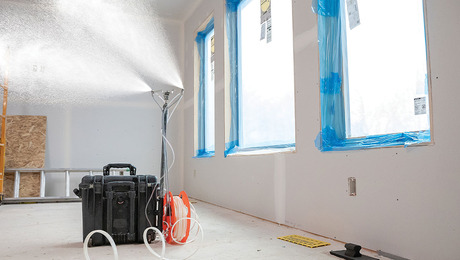

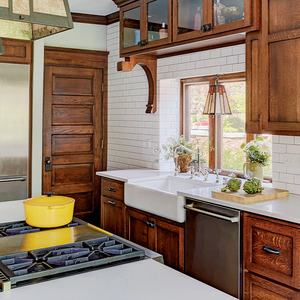
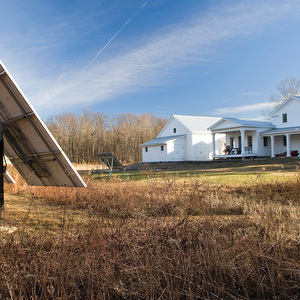

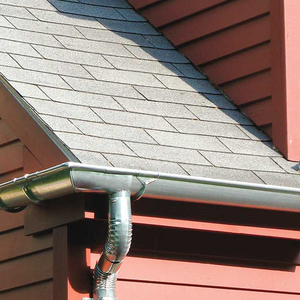







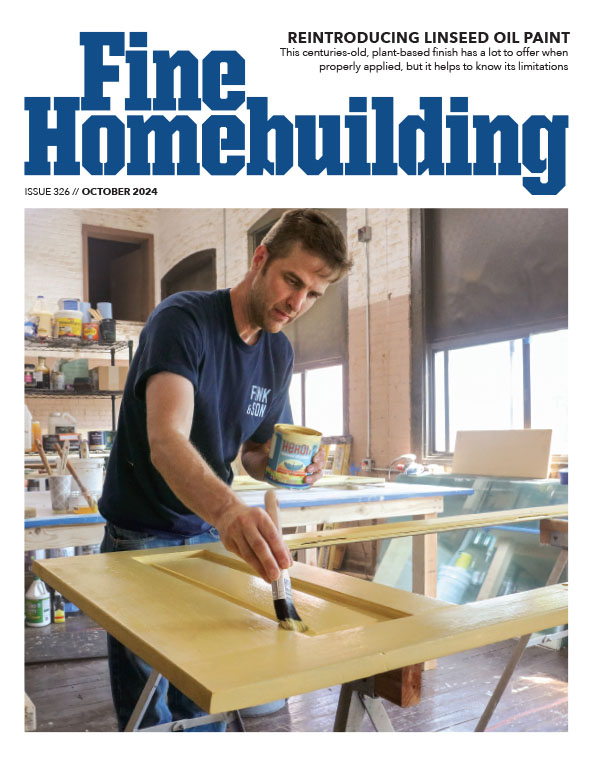





Replies
*
Jack I'm not familiar with a wall board product called Gypcrete, I am with a floor leveler called Gypcrete.
It is however highly unlikely that simply the backing would cause any wall tiles to crack. Cracking of ceramic wall tiles would normally be caused by a structural failure as opposed to a poor application.
Ceramic tiles have been installed for centuries on everything from mud walls to concrete and stone.
Most installations today are done on water resistant drywall or cement board and will last for ten years past the time that you like the colour.
I think I would ask for a second or third opinion from another contractor, before I would rush into any arguments with home warranty or contractors.
Hope I was of assistance
Gabe Martel GSC
Project Manager
*Jack, what is the nature of your cracked tiles? Are the cracked tiles dispersed randomly on the wall or are they adjacent to each other? If random, the tilesetter probably installed them already cracked. If in a line, the cracking is the result of stress. Myself, I am not familiar with Gypcrete on a wall. If you mean "drywall", then I don't think it would crack the tiles, unless the drywall was pushed so far out of plane as to effect cracking in the tiles. Gypcrete, as I know it, is used to even out subfloors, or to change elevations on the same. It is incompatible with portland-base products, such as thinset. It is possible to set ceramic tile with thinset onto Gypcrete, but the characteristics of that product will limit the longevity of the tile installation.If the tilesetter installed defective tiles you have a patent defect. If the tiles are cracking as a result of problem with substrate you have a latent defect. I suggest you check with your state to see what the statute of limitations are on these type of defects. This provides you with some ammo when confronting the builder. A home warranty offered by the builder is not the end-all to any claim you may have. Depending upon your state's laws, a builder's warranty is superceded by the state's regulations. It is always less costly for the builder to repair defects than to fight it out in court. I would suggest also that you make every attempt to cooperate with the builder in problem solving and resolution before you bring out the big guns. Think of this as a team approach. He wants a satisfied customer and you want a superior installation.A question: did you let the builder know that you were bringing in a different contractor for repairs? If you didn't and you're bathroom is now "a mess", you may be on your own re: repairs.
*
Thanks so much for your response. You offer many good suggestions that we'll follow.
The tiles cracked either diagonally across or somewhere within the tile itself as opposed to cracking along the grout lines. The cracked tile were all adjacent to each other.
Could settling of the house cause the tiles to crack? Our house is a little over a year old, so therefore the warranty with our builder (Tilson) is void as far as cracked tile goes----unless we can prove that faulty workmanship or defective material was used. According to Tilson, their tileman has done work for them for over 20 years. Because the warranty had expired, that's why we hired a different contractor to come in a make the repairs on the cracked brick. However, when he got into the project, he stopped to tell us he believed the "mud" used behind the tile was gyp-crete. This man also lays flooring for a living, so we thought he probably knows what gyp-crete looks like. We've stopped the tile repair altogether until we can find out more information about what's behind the tile. So far, we've been unable to get the original contractor for Tilson to tell us what he used. But, like you, we'd rather have an ammicable settlement to this problem, if Tilson did in fact, use gyp-crete behind the tile. Guess our only problem is actually proving it. Any suggestions as to how to prove it's gyp-crete? Thanks - Jack
P. S. What does substrate mean?
*
I have no idea what Gypcrete as used for a mud setting bed for wall installations would be. I do know there are incompatability problems as mentioned in my previous post. That the cracked wall tiles are adjacent to each other is a telltale substrate defect. The crack is running across the wall, right? The crack is telegraphing through the tiles. If it were due to house settling, you would notice other defects throughout the house such as cracks in the drywall at the wall/ceiling joints and above door openings, for some examples. Doors would possibly not close fully. Floors may be out of level. Basically, house movement sufficent enough to cause cracked tiles would be manifest in other areas of the house.
The Tile Council of America (TCA) has a materials testing lab. You can reach them at 864-646-TILE or http://www.tileusa.com They work closely with ANSI and ASTM.
It sounds like your builder is stonewalling you. You bought their product, the least they can do is cooperate with you re: installation materials used. It sounds like they know you already had some repair work done. If so, this is ammo for their defense.
That they have a 20 year relationship with a particular sub is insignificant to your problem. Of course, the inference is that, after 20 years, the sub should know what they are doing. However, this would not address your specific problem. Your builder does not seem to want to seek resolution here, ie, it is not their problem. IMO, this is not the path to a good reputation.
Your problem has now become one of how to get the builder to own up to the problem. (I keep saying "problem"; actually, this is a great OPPORTUNITY for the builder to get some great positive advertisement).
Your mission, if you decide to accept it, is to get the builder to cooperate with you in addressing the primary problem and help to resolve it. The issue is not yet who will pay for it.
I suggest you contact TCA re: material testing. It'll cost about $200, but it may provide the damning evidence you need to motivate a stalwart builder.
Wait, before you contact TCA, call a couple of established tile contractors. Offer them $30-40 each to come out and look at what you have. Explain to them you want their professional opinion. They may be hesitant to get involved so tell them you will keep them anonymous.
By all means, keep a logbook of what is happening, who said what and when, what worked has been/ will be done, etc.
BTW: what state do you live in? Did you try to find out what the state regulations are re: construction contractors? Remember, it is only the builder's warranty which has expired. You need to check with your state.
*
We recently noticed some cracked tile in our shower stall in the master
bathroom (and guest bathroom around the tub tile walls), and called a
contractor to come repair them. After he had removed the cracked tile,
he told us that the product used behind the tile called "gyp-crete" was
a product that was not recommended for tile shower wall installation.
He said it would crack, causing the tile to crack. Our home is just out
of the new home warranty by several months. My question is, do you know
whether or not gyp-crete is a recommended product for this type of use,
and does it meet the Uniform Building Code standards? We need to know
how hard we need to "discuss" the matter with the warranty people for
our builder. Any information you can pass along to us would be greatly
appreciated. Our bathroom is a mess, and we'd like to get it cleaned up
as soon as possible.
Thanks very much.